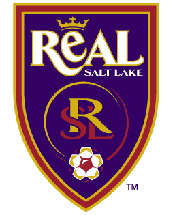Real Salt Lake and the tourist tax
 Funding for the new Real Salt Lake stadium, located in Sandy, has moved forward, but in doing so has kicked off a heated debate.
Funding for the new Real Salt Lake stadium, located in Sandy, has moved forward, but in doing so has kicked off a heated debate. For those who might not know, funding for the public portion of this project will be provided by a 1.25 percent hotel tax. The tax was passed last year, but was set to expire after 10 years. State lawmakers are now pushing an effort to remove the expiration date, i.e. make the tax permanent. It seems some hotel managers in the Salt Lake area don't like this.
When this tax was passed, revenues were to be used to pay for the expansion of the Salt Palace Convention Center (it seems it kept melting after every rain storm). This tax only applied to the Salt Lake area. One of the ways they got hotels to go along with it was by including the expiration date. Many hotels feel that removing this date equals a breach of good faith.
"It lacks community consensus. It lacks fairness," said Clint Ensign, senior vice president of Sinclair Cos., which owns the Little and Grand America hotels. "One industry is being asked to bear the whole burden of the [soccer] subsidy."
However, lawmakers say that they are not passing this just to help Real Salt Lake. What they say their bill is doing is giving opportunity to all areas of the state by allowing each county to place the tax on hotels (right now only Salt Lake County can do this) and to use the money as they see fit. At no point does HB371 say anything about soccer or Real Salt Lake. Advocates say Salt Lake County could use the additional money for whatever purpose they think is best.
Some hotel managers outside the Salt Lake area are happy with the plan as they hope tax money generated in their counties will lead to new convention centers and other such tourist related construction.
It does look like this bill will pass; I just wonder how it will effect Real Salt Lake long term. I don't like seeing public money go towards the construction of private industry, so I must say, I would not be overly happy about this happening in my area. However, that said, I don't think most people in the Salt Lake area will associate Real with a 1.25% tax they never pay. If it was something that they had to deal with daily (sales tax) or yearly (property tax), then I think it would be very damaging to the organization, but atlas, it looks like they will be able to sneak this one through.
Labels: Real Salt Lake


0 Comments:
Post a Comment
<< Home